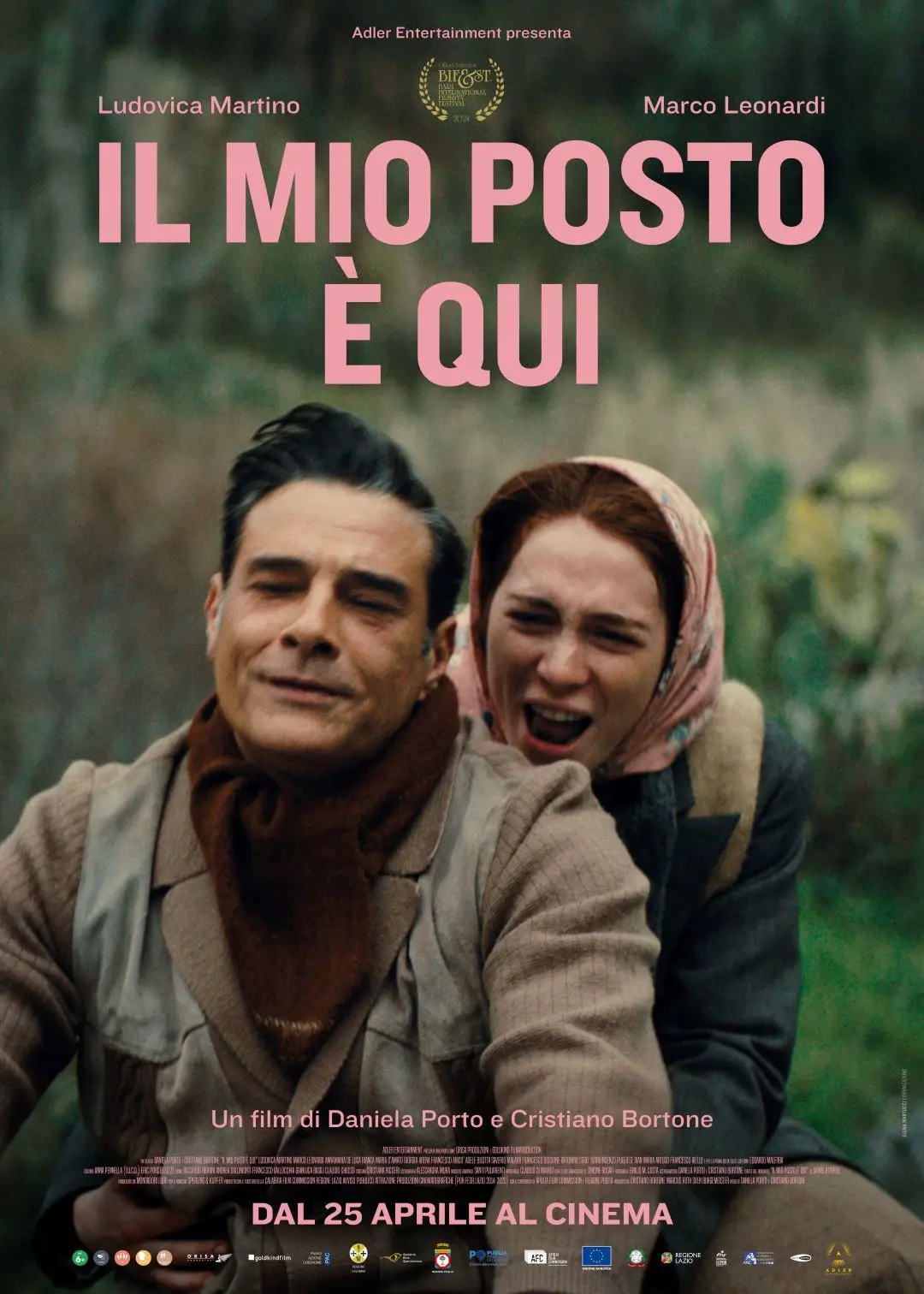

Based on the novel by Daniela Porto, My place is here, written and co-directed by Cristiano Bortone and the author, the film tells the story of friendship and female emancipation in the aftermath of WWII on the eve of the referendum to decide the form of government for Italy’s future.
In rural Calabria in the 1940s, a place and time dominated by deep-rooted patriarchal culture, Marta (Ludovica Martino), a single mother promised in marriage to a man she doesn't love, and homosexual Lorenzo (Marco Leonardi), known as “the wedding planner”, establish a deep friendship.
The story was shot, on an environmentally aware set, in Gerace, a historic village in Locride which has retained many of its original architectural features, such as dry-stone walls and cobbled alleys. To recreate a peasant village from the past, the modern signs in the town were removed, dirt flooring covered the tarmac and period objects added. These included the outdoor tables of a restaurant used for an outdoor Sunday break, with the Gothic portal of the Church of San Francesco clearly visible.
The story is set in alleys and countryside which offer glimpses of other villages in Locride, in particular: Canolo Vecchio, Agnana Calabra and Locri and Siderno on the coast.
For the interiors, the production shot in Apulia, in Gioia del Colle, where locations included the sacristy of the Church of St. Francis and the interiors of masseria Gigante, on the via provinciale for Acquaviva delle Fonti.
Based on the novel by Daniela Porto, My place is here, written and co-directed by Cristiano Bortone and the author, the film tells the story of friendship and female emancipation in the aftermath of WWII on the eve of the referendum to decide the form of government for Italy’s future.
In rural Calabria in the 1940s, a place and time dominated by deep-rooted patriarchal culture, Marta (Ludovica Martino), a single mother promised in marriage to a man she doesn't love, and homosexual Lorenzo (Marco Leonardi), known as “the wedding planner”, establish a deep friendship.
The story was shot, on an environmentally aware set, in Gerace, a historic village in Locride which has retained many of its original architectural features, such as dry-stone walls and cobbled alleys. To recreate a peasant village from the past, the modern signs in the town were removed, dirt flooring covered the tarmac and period objects added. These included the outdoor tables of a restaurant used for an outdoor Sunday break, with the Gothic portal of the Church of San Francesco clearly visible.
The story is set in alleys and countryside which offer glimpses of other villages in Locride, in particular: Canolo Vecchio, Agnana Calabra and Locri and Siderno on the coast.
For the interiors, the production shot in Apulia, in Gioia del Colle, where locations included the sacristy of the Church of St. Francis and the interiors of masseria Gigante, on the via provinciale for Acquaviva delle Fonti.

In the aftermath of WWII, in a small Calabrian town, a deep friendship begins between Marta, a single mother promised in marriage to a man she doesn't love, and homosexual Lorenzo, known as the "wedding organizer", that takes her to challenge the prejudices of their community and to fight for her place in the world as a woman.